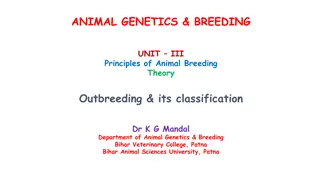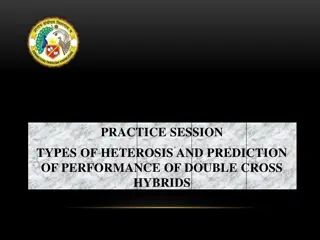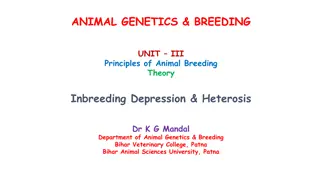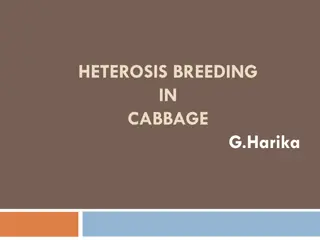Principles of Animal Breeding: Outbreeding and Its Classification
Outbreeding involves mating animals less closely related than the average population. It includes outcrossing, crossbreeding, grading up, and species hybridization. Outbreeding increases heterozygosity but decreases homozygosity. Heterosis, or hybrid vigor, shows the superiority of outbreds over par
0 views • 32 slides
Understanding Types of Heterosis and Predicting Performance of Double Cross Hybrids
Heterosis, also known as hybrid vigor, plays a crucial role in plant breeding. This article delves into different types of heterosis, including average, heterobeltiosis, economic, standard, and negative heterosis. It further discusses the prediction of performance in double cross hybrids involving f
1 views • 9 slides
Understanding Inbreeding Depression and Heterosis in Animal Genetics
Inbreeding depression is a decrease in the mean phenotypic value of traits related to fitness and physiological efficiency due to inbreeding. It involves a reduction in heterozygosity within a population, leading to an increase in homozygosity. The degree of inbreeding is quantified using the inbree
0 views • 24 slides
Understanding Heterosis Breeding in Cabbage: A Comprehensive Overview
Cabbage, a popular vegetable, has evolved from its non-heading types to heading varieties. Its growth has expanded to various regions in India due to heat-tolerant varieties and F1 hybrids. Cabbage is highly cross-pollinated, with up to 73% cross-pollination due to self-incompatibility. Bees and fli
0 views • 47 slides



